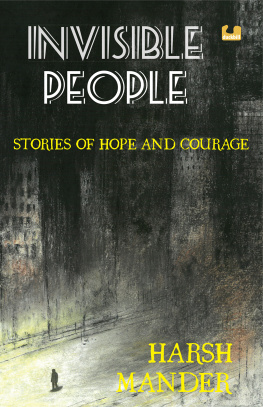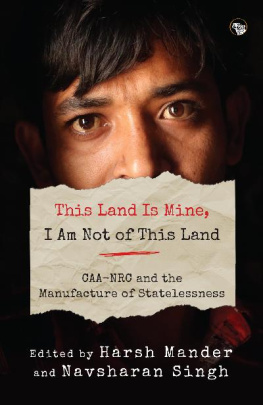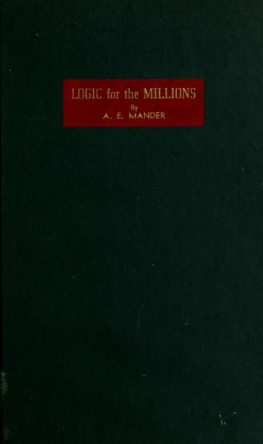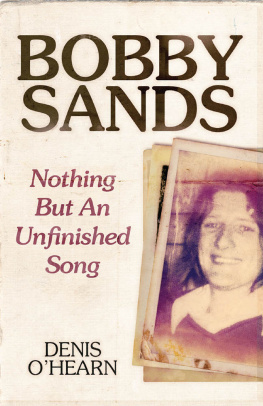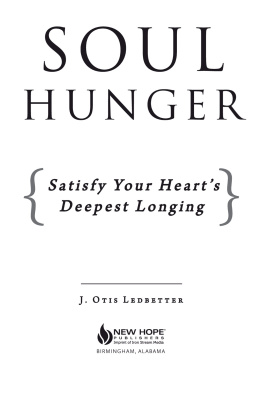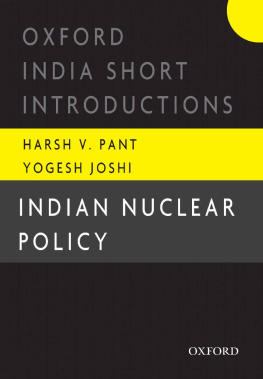Harsh Mander - Ash in the Belly: Indias Unfinished Battle Against Hunger
Here you can read online Harsh Mander - Ash in the Belly: Indias Unfinished Battle Against Hunger full text of the book (entire story) in english for free. Download pdf and epub, get meaning, cover and reviews about this ebook. year: 2012, publisher: Penguin UK, genre: Children. Description of the work, (preface) as well as reviews are available. Best literature library LitArk.com created for fans of good reading and offers a wide selection of genres:
Romance novel
Science fiction
Adventure
Detective
Science
History
Home and family
Prose
Art
Politics
Computer
Non-fiction
Religion
Business
Children
Humor
Choose a favorite category and find really read worthwhile books. Enjoy immersion in the world of imagination, feel the emotions of the characters or learn something new for yourself, make an fascinating discovery.

- Book:Ash in the Belly: Indias Unfinished Battle Against Hunger
- Author:
- Publisher:Penguin UK
- Genre:
- Year:2012
- Rating:3 / 5
- Favourites:Add to favourites
- Your mark:
- 60
- 1
- 2
- 3
- 4
- 5
Ash in the Belly: Indias Unfinished Battle Against Hunger: summary, description and annotation
We offer to read an annotation, description, summary or preface (depends on what the author of the book "Ash in the Belly: Indias Unfinished Battle Against Hunger" wrote himself). If you haven't found the necessary information about the book — write in the comments, we will try to find it.
Harsh Mander: author's other books
Who wrote Ash in the Belly: Indias Unfinished Battle Against Hunger? Find out the surname, the name of the author of the book and a list of all author's works by series.
Ash in the Belly: Indias Unfinished Battle Against Hunger — read online for free the complete book (whole text) full work
Below is the text of the book, divided by pages. System saving the place of the last page read, allows you to conveniently read the book "Ash in the Belly: Indias Unfinished Battle Against Hunger" online for free, without having to search again every time where you left off. Put a bookmark, and you can go to the page where you finished reading at any time.
Font size:
Interval:
Bookmark:

Indias Unfinished Battle Against Hunger

PENGUIN BOOKS
PENGUIN BOOKS
Harsh Mander, fifty-five, social worker and writer, is a member of the National Advisory Council. He is also the founder of the campaigns Aman Biradari, for secularism, peace and justice; Nyayagrah, for legal justice and reconciliation for the survivors of communal violence; and Dil Se, for street children and homeless people. He is special commissioner to the Supreme Court of India in the Right to Food case, and director, Centre for Equity Studies. For almost two decades he worked in the Indian Administrative Service in Madhya Pradesh and Chhattisgarh. He is also associated with causes like tribal, Dalit and disability rights, the right to information, custodial justice and bonded labour.
He writes columns for The Hindu and Hindustan Times, and is the author of Unheard Voices: Stories of Forgotten Lives and Fear and Forgiveness: The Aftermath of Massacre published by Penguin India. Other books include The Ripped Chest: Public Policy and Poor in India and his co-authored Untouchability in Rural India. Harsh has taught in the Indian Institute of Management, Ahmedabad; St Stephens College, Delhi; California Institute of Integral Studies, San Francisco; LBS National Academy of Administration, Mussoorie; and the Nelson Mandela Centre for Peace and Conflict Resolution, Jamia Millia Islamia, Delhi, among others.
He lives in Delhi with his wife and daughter.
For my parents,
Har Mander Singh
and
Narinder Kaur,
with gratitude and love
APL | : Above Poverty Line |
BMI | : Body Mass Index |
BPL | : Below Poverty Line |
DDA | : Delhi Development Authority |
GMO | : Genetically Modified Organism |
HUDCO | : Housing and Urban Development Corporation |
ICDS | : Integrated Child Development Services |
IFPRI | : International Food Policy Research Institute |
IAY | : Indira Aawaas Yojana |
KBK | : Koraput, Bolangir and Kalahandi districts of Orissa |
MGNREGA | : Mahatma Gandhi National Rural Employment Guarantee Act |
NCM | : National Commission on Minorities |
NCHS | : National Centre Health Statistics |
PUCL | : Peoples Union for Civil Liberties |
SGRY | : Sampoorna Grameen Rozgar Yojana |
Employment Guarantee Scheme (EGS): a precursor to the MGNREGA. The Maharashtra Employment Guarantee Scheme, 1977, was enforced on 26 January 1976. The objective was to provide gainful employment and productive employment to people in rural areas and in the areas of C class municipal councils, for those who were in need of work and were prepared to do manual labour but could not find it on their own. Wages were paid according to the quantity of work done. The guarantee for work was given at the district level and work was provided within a radius of 5 kms from the beneficiaries residence. The works were implemented through various government departments, such as irrigation, public works, agriculture, forest, local bodies viz. zilla parishads.
Employment Assurance Scheme (EAS): was launched on 2 October 1993, for the 1778 blocks selected on the basis of being drought prone, desert, hilly or tribal, areas. The objective of the scheme is to provide gainful employment in lean agricultural months to able-bodied individuals in rural areas subject to availability of funds. It is a single wage employment programme to be implemented at the district and block levels throughout the country.
Integrated Child Development Scheme (ICDS): was enforced on 2 October 1975. ICDS, under the purview of the department of women and child development. It is Indias flagship scheme for early child development. Its main aim is to improve the nutrition and health status of children in the age group of 06 years and lactating mothers by providing supplementary nutrition, immunization, health check-ups and preschool non-formal education.
Indira Aawaas Yojana (IAY): was enforced as an independent scheme on 1 January 1996. This scheme, under the ministry of rural development, aims to provide financial assistance to the rural poor living below the poverty line (BPL) for the construction of a house. The revised financial assistance provided for new construction under IAY is Rs 45,000 per unit for the plain areas and Rs 48,500 for the hilly/difficult areas.
Mahatma Gandhi National Rural Employment Guarantee Act (MGNREGA): enacted on 25 August 2005, is a scheme aimed at improving the purchasing power of rural people, provides a legal guarantee for 100 days of employment in every financial year to adult members of any rural household willing to do public-work-related unskilled manual work at the statutory minimum wage of 100 rupees per day.
Mid Day Meals (MDMs): the idea of providing food for disadvantaged children dates back to 1925 when the Madras Municipal Corporation first introduced it. By the mid 1990s the scheme extended to almost all states of India, and this was consolidated with hot cooked meals in all government schools. The objective of the scheme is to provide cooked midday meals in all government and government-aided primary schools in the State/Union territories (UT). In all drought-affected areas, the midday meal is to be provided to primary school children throughout the summer vacation. This meal is to be provided free of cost to all schoolchildren. Money for the meal is not to be collected from parents of children under any circumstances. The Central government is also to allocate funds to meet the conversion costs of foodgrains into cooked midday meals. Provisions are also to be made for the construction of kitchen sheds, better infrastructure and improved facilities including facilities for drinking water. In appointment of cooks and helpers preference is to be given to Dalits, scheduled castes and scheduled tribes.
National Family Benefit Scheme (NFBS): was introduced on 15 August 1995 and was valid up to 24 April 2011. It was as scheme sponsored by the Central government and was implemented by the ministry of rural development, to assist families living below the poverty line (BPL). It aimed to provide financial assistance to the family of the bread winner, in case of her/his death. The death should have happened, while she/he was eighteen to sixty-four years of age. The amount of assistance was Rs 10,000. The gram panchayats and the municipalities were to identify the beneficiaries under the scheme.
National Maternity Benefit Scheme (NMBS): was introduced in 2001 to provide nutrition support to pregnant women. Under this scheme BPL pregnant women are given a one-time payment of Rs 500 eighttwelve weeks prior to delivery. In the year 2005, the Government of India launched the Janani Suraksha Yojana under the National Rural Health Mission to provide cash incentives for women to have an institutional delivery. The NMBS was merged into the JSY and with the intervention of the Supreme Court the benefits under the NMBS are to be dispensed, irrespective of the place of delivery.
Font size:
Interval:
Bookmark:
Similar books «Ash in the Belly: Indias Unfinished Battle Against Hunger»
Look at similar books to Ash in the Belly: Indias Unfinished Battle Against Hunger. We have selected literature similar in name and meaning in the hope of providing readers with more options to find new, interesting, not yet read works.
Discussion, reviews of the book Ash in the Belly: Indias Unfinished Battle Against Hunger and just readers' own opinions. Leave your comments, write what you think about the work, its meaning or the main characters. Specify what exactly you liked and what you didn't like, and why you think so.

